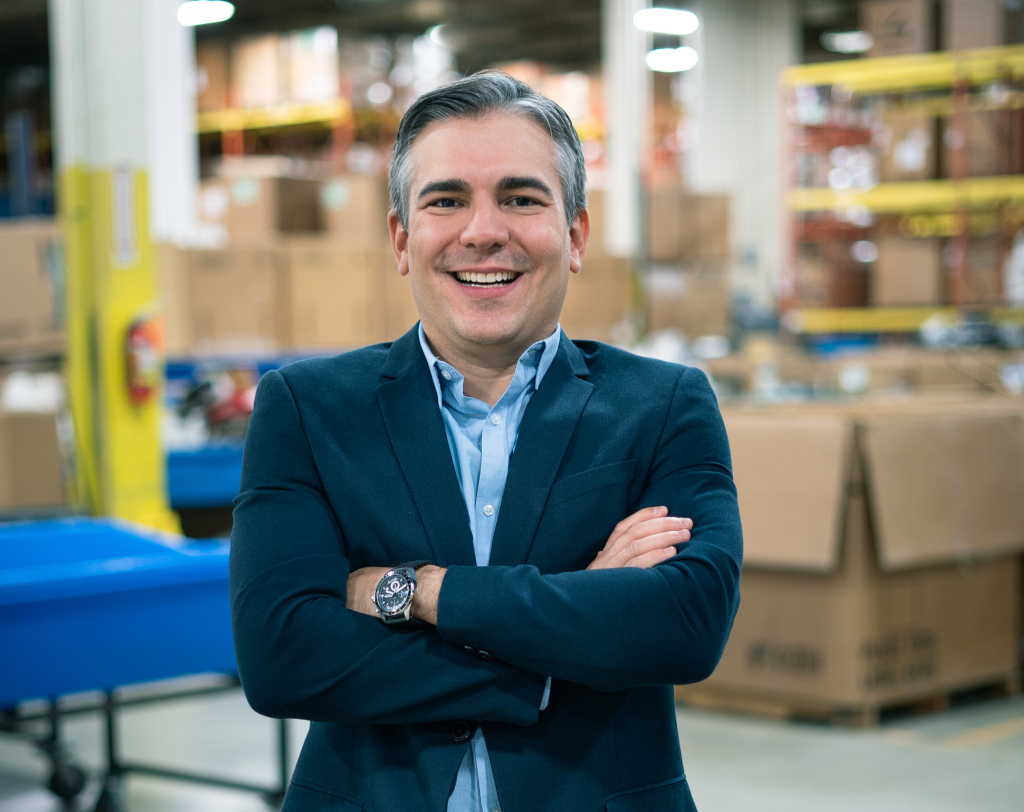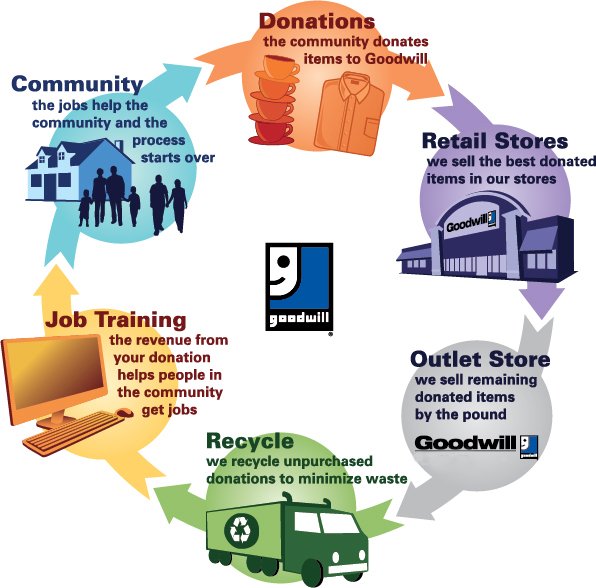Green Energy Futures presents, in collaboration with the Alberta Emerald Foundation, the Emerald Series: conversations with Alberta Emerald Award winners.
By David Dodge and Kay Rollans

What On Earth Can We Do Podcast
Goodwill striving for zero-waste
The Goodwill Impact Centre (GIC), a facility devoted to diverting waste from landfills and the first of its kind in western Canada, opened in 2017. By 2018, Goodwill Alberta was already diverting 81 per cent of its waste from landfills. That’s more than 13 million kilograms of material, and an increase of three per cent waste diversion over the year before.
Goodwill Alberta’s commitment to reuse (not to mention reducing, repurposing, and upcycling) ahead of recycling won them an Emerald Award last year.
Goodwill Alberta’s goal is to strive for zero-waste accreditation. In 2018, they were only nine per cent shy of the framework’s 90 per cent diversion benchmark. Mortimer Capriles, Director of Sustainability and Innovation for Goodwill Alberta, says that today, they’ve hit that benchmark.
The secret? That waste isn’t really waste. “We now have a new program where we transform donated candles into new candles, donated crayons into new crayons,” says Capriles. The GIC also converts old stuffed animals into housing insulation for use in India and cleans used books for donation to the Alberta Reads Networks.
Perhaps most impressively, Goodwill has centralized its recyclable waste disposal at the Impact Centre itself. “Recycling is awesome when properly done,” says Capriles. With their own in-house plastic granulator, the Goodwill breaks down plastic waste and, in collaboration with Full Circle Plastics in Lethbridge, create plastic benches.
Reduce, reuse, and then recycle
Capriles says we need a refresher on the three Rs. “People know a lot about recycling,” he says, but we’ve lost track of the crucial first two steps: reduce and reuse. “We need to increase awareness of the importance of reusing. … reusing is so important because not every single item can be recycled, but almost every single item can be either reused or repurposed.”
Recycling that glass bottle saves some of the energy needed to produce a new bottle from scratch—about 10 to 15 per cent—but that’s only if it actually makes it to a recycling facility. Reusing that same bottle, on the other hand, has an energy savings of 100 per cent. In other words, big energy savings come from reducing and reusing.
When recycling is necessary, however, we should go local. According to the Recycling Council of Alberta, a localized recycling industry could contribute $1.4 billion to the local economy, creating jobs, saving energy, and transportation costs and resources.

Recycling = jobs
Those in the recycling industry think the time may be right for Extended Producer Responsibility – the idea of making producers responsible for recycling the waste they produce. The idea could dramatically reduce waste and create a lot more jobs.
This waste-not philosophy also applies to energy – estimates are that energy efficiency will be as important as producing clean energy as the world struggles to reduce greenhouse gas emissions.
Investment in the clean energy sector is growing at almost twice the rate of the rest of the economy. Clean energy jobs are growing at a rate nearly four times that of other sectors. And most of those jobs are in energy waste reduction.
The work Goodwill does reduces waste and saves lots of energy. We all need to do our part to help support these industries—and why not start with Goodwill? It’s easy, says Capriles: “Go to Goodwill and look amazing and help a great cause and save the environment.”
The Goodwill Impact Centre is located at 11415 168 Street in Edmonton. The Alberta Emerald Awards are presented every year in recognition of outstanding environmental achievements. Keep your eyes peeled for the 29th annual Emerald award winners in June. In the meantime, check out the Emerald Foundation’s podcast, What on Earth Can We Do? This story was prepared in partnership with the foundation based on episode 3, The Realities of Recycling.

